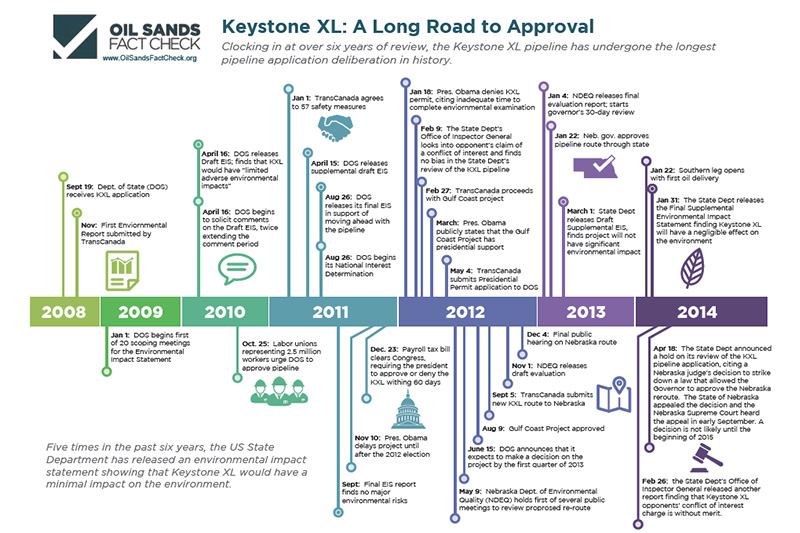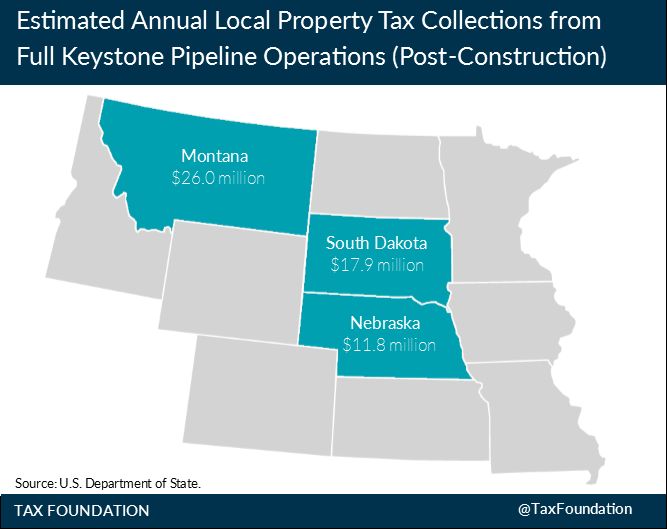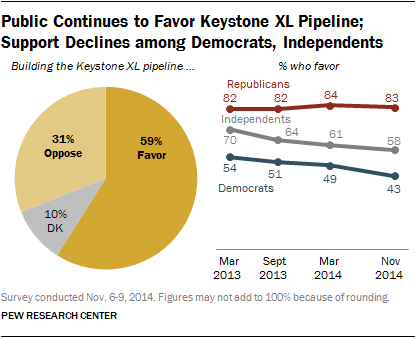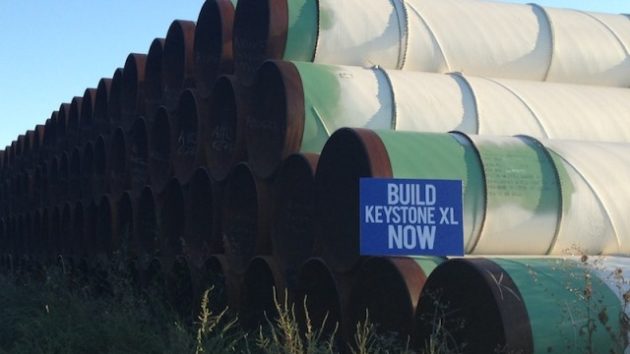In Veto Threat, President Claims 6 Years Isn’t Enough Time to Study Keystone Pipeline
On the first day of taking control of the U.S. Senate, Republicans ran into some trouble:
Democrats managed to put the kibosh on a planned Energy and Natural Resources [ENR] Committee hearing today on Keystone XL, forcing Republicans to cancel the event. Sen. Dick Durbin, on behalf of Barbara Boxer, objected to a GOP floor move seeking unanimous consent to appoint Lisa Murkowski and Maria Cantwell as the leaders of ENR. The appointment was necessary for the move to take place because Democrats do no formally organize until today. Objecting to the UC request prevented the committee from being able to organize in time for today’s hearing, which was then scrapped.
While a minor setback, it typifies the many delays and obstacles put in front of the Keystone XL pipeline since permits applications were filed in 2008.
However, as soon as the bill to approve the job-creating, energy infrastructure project was filed in the Senate, theWhite House threatened to veto it.
The Statement of Administration Policy on the bill states the bill “seeks to circumvent longstanding and proven processes for determining whether cross-border pipelines serve the national interest” and “prevents the thorough consideration of complex issues.”
In other words, the President wants you to believe that there hasn’t been enough time to study the pipeline.
That’s absurd.
The Keystone XL pipeline has been studied for over six years. Five times, the State Department has issued reports that the project would have minimal impact on the environment.

For a larger view click on the chart.
The most recent State Department analysis found that along with little environmental impact, the Keystone XL pipeline will create 42,000 jobs, generate $3.4 billion in economic activity, and generate $55.6 million in local property taxes once it’s operating.

I assure you, threatening to veto a jobs and infrastructure bill within minutes of a new Congress taking the oath of office — a bill with strong bipartisan support — is anything but productive.
Bill co-sponsor, Senator Joe Manchin (D-WV):
His decision to veto such a commonsense bill prior to the unfolding of regular congressional order and the offering of amendments appears premature and does little to mitigate the congressional gridlock. It is time that we address the critical issues of moving America toward energy independence and fostering job growth and economic prosperity.
By working at a snail’s pace, the administration has turned this project into a mobilization tool for anti-energy activists. It has allowed special interest demagoguery to trump sober policy analysis and made the Keystone XL pipeline a symbol of a dysfunctional federal permitting process. People in Montana, South Dakota, Nebraska, and the rest of America have waited long enough.
The Wall Street Journal editorial board advised Congress to vote to approve the pipeline anyway [subscription required]:
Members of both parties should move ahead despite the veto threat and call his bluff. At least the country will see who is the real obstacle to faster growth and job creation.
Agree. Tell Congress to support the Keystone XL pipeline.
Businesses, investors, and entrepreneurs wondering if it’s still possible to build big things in America are watching,labor unions that support the pipeline are watching, and a majority of the public who supports the pipeline is watching.



